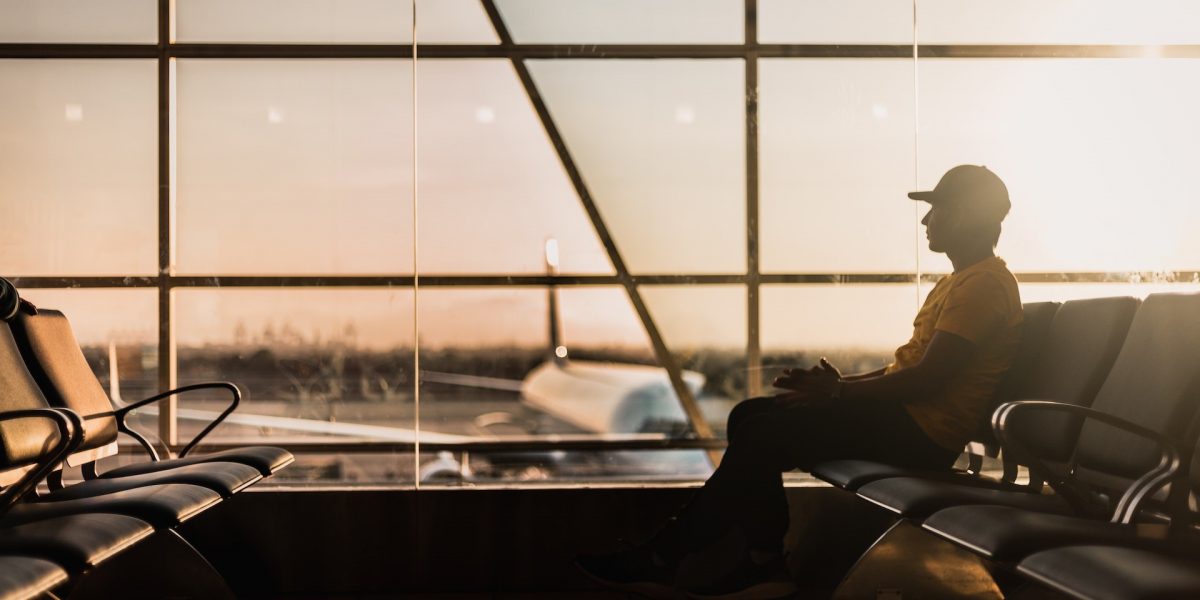Delve into the Controversial World of Skiplagging: How Passengers Are Outsmarting Airline Pricing
In the realm of modern air travel, a new legal battle has emerged, pitting American Airlines against a contentious ticketing platform. This lawsuit has thrust the spotlight back onto the intriguing phenomenon known as “skiplagging” or “hidden city ticketing.” This crafty strategy, employed by some savvy passengers, promises reduced fares while introducing a dash of controversy to the aviation landscape.
Read also: Navigating Netflix’s Extra DVD Offer Amidst Impending Service Shutdown
Defining Skiplagging: A Travel Tactic Unveiled
Skiplagging, the focus of this strategic discourse, involves an innovative travel technique. Imagine a passenger’s desire to journey from the bustling streets of New York to the charming allure of Charlotte, N.C. Yet, the nonstop route bears a hefty price tag. Enter skiplagging, a tactic where these cost-conscious travelers opt for a more economical flight that carries them from New York to Denver, with a layover scheduled in Charlotte. But here’s the twist: instead of completing the entire journey to Denver, they disembark at the stopover in North Carolina, sidestepping the rest of their ticketed route.
This practice isn’t a novel concept. Henry Harteveldt, a distinguished travel industry analyst at Atmosphere Research Group, reveals that travel agents have been privy to hidden city fares for decades. In some instances, these agents willingly shared these secrets with their clientele. However, the surge in airline prices in late 2021 breathed new life into the age-old practice of skiplagging, amplifying its prominence.
Elevating Hidden City Ticketing
At the forefront of this revolution is Skiplagged.com, a website that has played a pivotal role in propelling hidden city ticketing to the forefront. The platform empowers users to input their desired destinations, subsequently unveiling flights where said destination functions as a stopover en route to another city. This strategic maneuver leads to a reduced fare, making air travel more accessible. The brilliance lies in passengers disembarking at the connecting city, bypassing the second leg of their journey altogether.
However, as the spotlight grows brighter, so do the legal challenges. In a recent turn of events, American Airlines has taken Skiplagged to federal court, alleging the platform’s practices to be “deceptive and abusive.” The airline contends that Skiplagged misleads the public into believing it can issue valid tickets on America’s behalf, a claim that American vehemently refutes.
Peering into Airlines’ Disdain for Skiplagging
Skiplagging itself isn’t illegal, yet major airlines such as American, Delta, Southwest, and United are staunchly against it. But why? Tim Huh, a respected professor at the University of British Columbia’s Sauder School of Business, points out that airlines stand to lose revenue due to this practice. For flights that involve layovers, airlines price them more competitively to attract customers. However, they reserve the right to command higher prices for direct flights. This dynamic ensures that when travelers opt for skiplagging, airlines miss out on potential revenue.
Moreover, the repercussions extend beyond mere monetary loss. When a passenger skips the final leg of their journey, airlines are left with empty seats that could have been sold at a premium had they not been bundled into a multi-stop itinerary. This discrepancy disrupts the careful revenue projections airlines rely upon.
Navigating the Risks and Consequences
While skiplagging offers financial advantages to passengers, it comes with its fair share of risks. Airlines possess the authority to respond if they catch wind of this practice. Potential consequences include ticket cancellations and, in extreme cases, bans from flying with the airline. For instance, a recent incident involved a North Carolina teenager disembarking at a connection in Charlotte rather than completing the journey from Florida to New York. American Airlines banned the teenager from flying with them for three years.
Furthermore, the benefits of skiplagging are often short-lived. Success may be fleeting, primarily restricted to one-way travel. Airlines can quickly identify deviations from the ticketed itinerary, leading to the cancellation of return flights. Additionally, passengers employing skiplagging forfeit the luxury of checked luggage. Only carry-on bags accompany them, ensuring a streamlined travel experience.
Skiplagging’s Intriguing Intersection with Air Travel
As American Airlines squares off against Skiplagged.com in court, the world of skiplagging remains a polarizing topic. This crafty technique, born out of the desire to save on airfares, challenges the norms established by major airlines. By sidestepping certain legs of their journey, passengers embrace affordability while airlines grapple with revenue loss. It’s a delicate balancing act that exposes the tension between passenger ingenuity and airline policies. Whether skiplagging is an act of strategic brilliance or an ethical quagmire is a debate that continues to soar among both travelers and industry experts alike.






